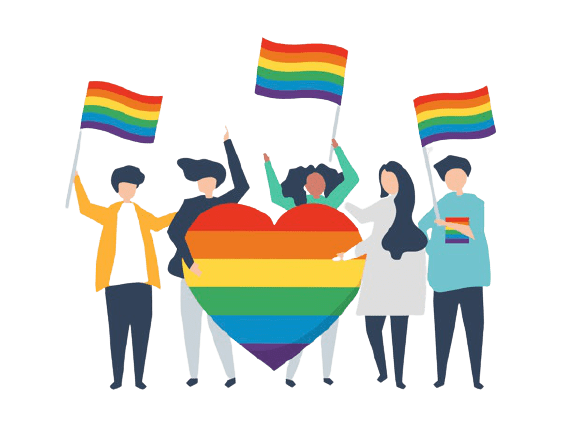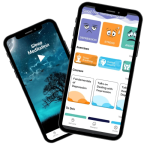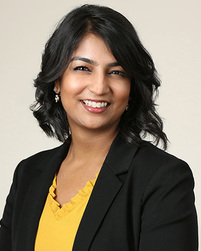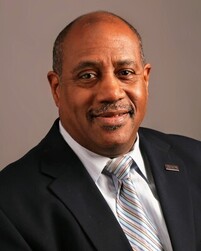Online Queer Counseling | Best Therapist For Queer Counseling
- Setup a free & confidential chat on your sexuality.
- Unlimited help through our self-care app.
- Live Video or Chat sessions with top Queer Counselors.
Get The Best Help For Sexuality Issues
TherapyMantra is here to help you on your path to recovery from sexuality issues. We match you with the best Queer Counselors available 24/7 via video call or messaging.
Match with Top Queer Counselors
We assign the best counsellors experienced in sexuality issues based on your needs.
Affordable and Effective
Our online sessions are 90% less expensive than in-person therapy, available 24/7.
Self-Care
We offer ongoing support through self-care tools, depression help videos, chat groups, meditations, breathing exercises, and other resources.

Wondering if it’s just a phase or something more? Take our Free online Queer Counseling to find out?
How Does It Work?
You are matched with a Queer Counselor based on your needs and preferences. You get a secure “therapy room” where you can communicate with your counsellor via chat or phone. You can write or talk about your issues & ask questions to deal with sexuality issues.

Register for Queer Counseling
Simply complete a 5-minute online form to tell us about your sexuality issues

Consult with your Queer Counselors
We connect you with Queer Counselors who are available 24/7 based on your preferences and needs.

Connect to Our App
Apart from Video / chat sessions, our app offers self-care tools, videos and meditations to help you deal with your sexual issues.
Best Gay Counselors
Positive conversations, exercises, and meditations are used by TherapyMantra psychologists to help you deal with depression. Our Queer Counselors outperform traditional counselling as you get matched from a pool of 500+ Queer Counselors, who offer 24/7 unrestricted private chat.








What is Queer?
Queer is an umbrella term used to describe individuals who identify as lesbian, gay, bisexual, transgender, and/or queer. Queer can be used as an adjective to describe someone’s sexual orientation or gender identity, or it can be used as a noun to refer to the queer community.
Queer is often considered a derogatory term, but many people within the LGBTQIA+ community have reclaimed it and now use it proudly. Queer can be seen as a way to challenge traditional notions of sexuality and gender.
Types Of Queer
There are many different types of queer people, including but not limited to:
- Lesbians: Women who are attracted to other women.
- Gays: Men who are attracted to other men.
- Bisexuals: People who are attracted to both men and women.
- Transgendered individuals: People who identify as a gender that is different from the one they were assigned at birth.
- Queer-identified individuals: People who do not specifically identify as any of the above, but still identify as queer.
Symptoms Of Queer Behavior
There is no one way to be queer, and there is no one set of symptoms that all queer people share. However, there are a few behaviors that are often associated with queer people. These include:
- Questioning gender norms and expectations.
- Being creative and expressive.
- Having a non-conventional romantic orientation.
- Not fitting into traditional gender roles.
- Fighting for LGBTQIA+ rights.
- Celebrating Pride month every year.
If you feel like you might be queer, or if you are questioning your sexuality or gender identity, it’s important to talk to someone about it.
Reasons For Queer Behavior
There is currently no scientifically proven explanation for why people are queer. There are many different theories, though, including:
- The Oedipus complex: An idea developed by Sigmund Freud that suggests people become fixated on their parents of the opposite sex because they desire them sexually. The complex can also occur with same-sex parents, especially if children grow up in a household where there is no clear distinction between what activities and behavior are considered masculine or feminine.
- A genetic mutation: Some studies suggest that there may be a gene that causes individuals to identify as queer even when raised in an environment where gender roles were not enforced.
- Empathy training: This theory posits that babies who receive lots of love and affection from their caregivers will grow up to be more empathetic and sensitive than other children. Because these children take care of their caregiver’s feelings as well as their own, they develop a habit of seeing things from other people’s perspectives. This can lead them to question gender roles and explore different sexualities as they come into contact with individuals who do not fit neatly into those categories.
- The brain: Some studies have shown that queer-identified brains function differently than those of people who identify as straight, but scientists are still trying to understand how this works and if it is an innate or learned behavior.
- Environmental influences: No matter what type of person you’re attracted to, there is no single explanation for why we end up liking the people we do. There are many different environmental factors that affect everyone’s sexuality, including media exposure, societal expectations, and personal experiences.
Issues Faced By Queer Group
Being Queer has its own set of problems, almost all the time. Some are obvious, some aren’t so much. I’m going to take a stab at what I feel are the most crucial or common ones. Bear in mind this list is by no means exhaustive!
- It takes so much effort to ‘come out’. The fear of being rejected or ridiculed by your loved ones, friends and acquaintances is very real. It’s not easy to put yourself out there only to be potentially hurt in the end.
- There’s a constant fear of ‘being found out. This often leads Queer people to lead double lives, which isn’t healthy for anyone.
- Queer people often ‘come out when they already feel mentally and emotionally exhausted. It can take a toll not only on the individual but also on their loved ones, which is far too much for anyone to handle.
- There’s always this fear of facing discrimination from your social circle, whether it be your family or friends. People have been ostracized and even disowned for being Queer, which is heartbreaking.
- Queer people are often fetishized by the straight community, which can be extremely dehumanizing and offensive. This happens both consciously and unconsciously, and it’s something that we constantly have to deal with.
- Queer people are often told that their sexuality or gender identity is wrong or sinful, which can be really damaging. It’s hard to feel accepted and loved when the people around you are telling you that you’re wrong.
- Queer people are often erased from existence, both in the media and in real life. We are constantly told that our lives don’t matter, and that just isn’t fair.
- Queer people are constantly battling the fear of being judged by society, which is why many choose to hide their sexuality/identity in public. This contributes to erasure and also spreads harmful misconceptions about our community.
- The world is still very homophobic and transphobic, with some countries even criminalizing homosexuality or having no legal protection for queer people. This can lead to discrimination, hate crimes, and even death.
These are just some of the problems that Queer people face daily. It’s not easy being constantly on guard against discrimination or hatred, but we manage to do it. We’re strong, resilient and above all, we’re survivors.
Therapy Options For Queer Counseling
Individual Therapy
Sometimes called “talk therapy,” this is when a mental health professional meets with you one-on-one to identify the problems in your life and discuss ways to solve them. Because there’s no “cure” for homosexuality, it’s not usually covered by insurance and can be expensive (usually hundreds of dollars per session).
Group Therapy
In group therapy, you meet with a therapist and a handful of other people who are also struggling with the same issue. This can be helpful because you can share your experiences, learn from others, and get support from people who understand what you’re going through. Support Groups
There are many online and offline support groups for LGBTQ folks. They include places where you can find information, resources, and encouragement. Some groups offer peer mentorship offline or online. This means that someone who is “out” as LGBTQ moderates the group to provide advice and guidance to those who are just coming out or trying to figure things out.
How to find a Queer Counselor?
TherapyMantra can help you find a Queer Counselor near you. We have over 500+ therapists listed on our therapist directory. You can follow the following steps to find a good Queer Counselor:
- First, ask your family doctor or anyone else you are seeing for a referral for Queer Counseling.
- The next thing you’ll want to do is ask your friends and loved ones for referrals.
- The next thing you’ll want to do is look online. There are many websites that help people find therapists in their area who can treat things like depression.
10,000+ Happy & Healed patients

“The therapist at Therapy Mantra was easy to communicate with, and it was wonderful and beneficial to communicate my problems in a safe environment.” I value our simple ‘connection,’ as well as his knowledge and experience, and how this has translated into a compassionate and caring professional relationship with me.”
Kevin,
1 year on TherapyMantra
FAQs
Queer is an umbrella term for sexual and gender minorities who have historically been marginalised in society, but it can also refer to anyone whose sexuality and/or gender identity differs from the heterosexual norm.
All members of these groups face biases based on sexuality and gender ideas and customs. LGBT people face a variety of financial and cultural injustices because they are members of a social minority group. A lack of societal acceptance makes it difficult for LGBT people to exercise and enjoy their rights as citizens. They are more likely to face intolerance, discrimination, harassment, and the threat of violence because of their sexual orientation than individuals who identify as heterosexual.
Online queer therapy has been shown to be as effective as in-person therapy. There are numerous reasons why online counselling is superior:
There is no need to visit a psychologist, sit on the same couch, and speak with the same therapist. You don’t have to leave the comforts of your home or office to receive online queer therapy. Talk to your therapist while sitting on your bed in your pyjamas!
Most of us lead hectic, unbalanced lives, making it difficult to fit in a traditional therapy session. You can control the time, location, and initial direction of the therapeutic relationship with online queer therapy. It is freedom that prioritises you, the client seeking mental health solutions.
We provide a wide range of free self-help tools, including queer & anxiety control exercises, relaxation techniques, mindfulness exercises, and informative blogs. We also provide free mental healing videos, chat groups, breathing meditations, and other resources 24 hours a day, seven days a week. Queer counselling, on the other hand, has a small fee. Having said that, we offer one of the most affordable ways to address queer issues.
TherapyMantra charges between $15 and $40 per week for queer counselling. Unlike traditional in-office therapy, which can cost more than $150 per session, your TherapyMantra membership includes unlimited text, video, and audio messaging.


